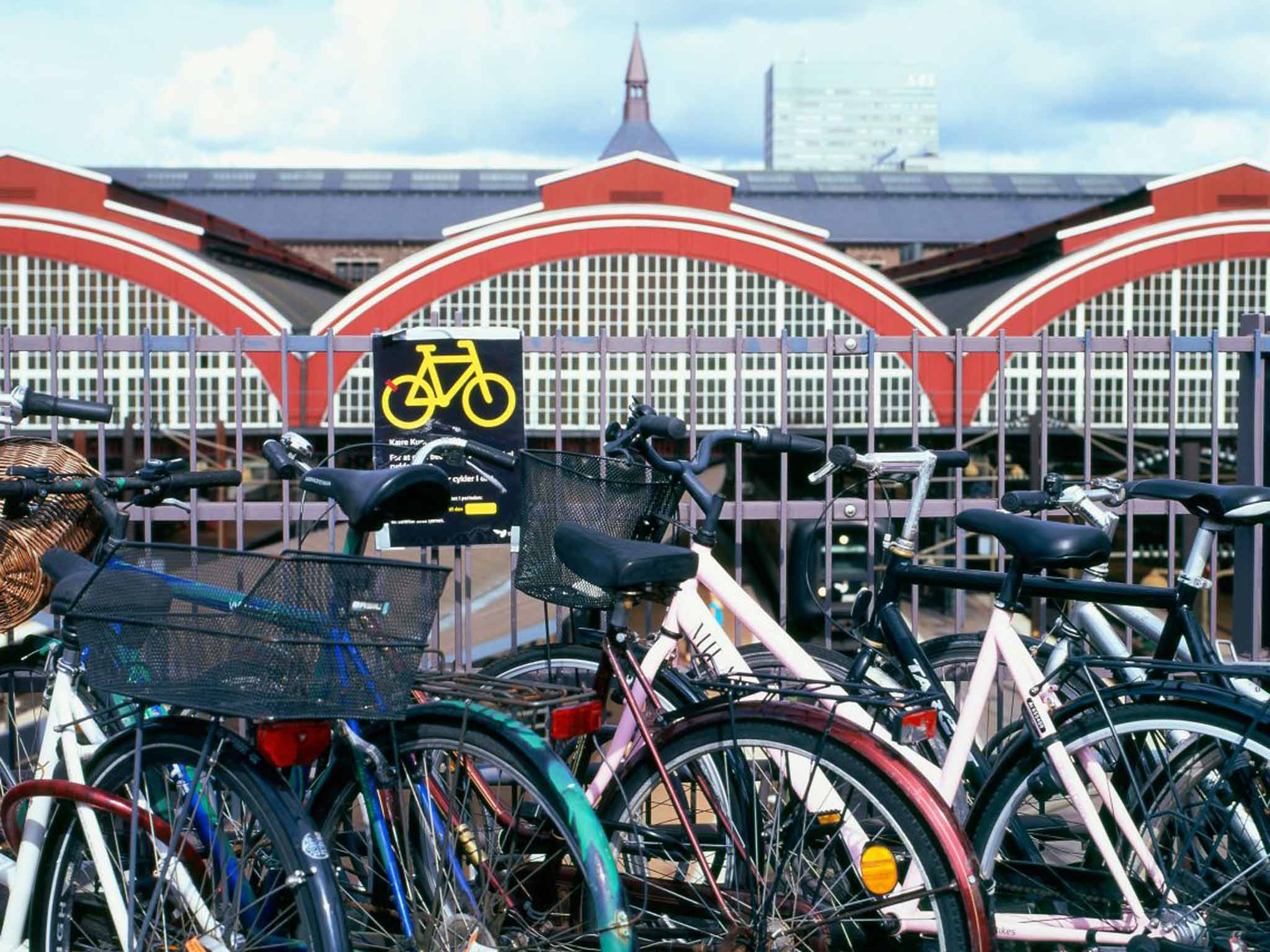How Brexit could affect your holidays: Duty-free, passport queues, and medical treatment
The man who pays his way

Snabbtag is a Swedish term. For a small-but-significant component of an Ikea self-assembly wardrobe? No, something more important than that (unless you are presently trying to make sense of a disassemblage of wood, metal and plastic with the help of instructions that might as well be in Quechua). It means “fast train”.
The term is specifically used for the expresses that connect two great Scandinavian capitals, Stockholm and Copenhagen. At least in theory.
Twenty-five years ago this spring, European unity took a great leap forward. Sweden and Denmark agreed to build a fixed link across the strait that divides them, Oresund. With the stroke of a Scandinavian pen that no doubt blended form and function beautifully, the two nations consigned to oblivion the ferry operators connecting Copenhagen with Malmo and inadvertently fuelled a new television genre, Nordic Noir, with the bridge that became The Bridge.
The main purpose of the Oresund Link was to erase a key barrier to travel within Europe, allowing fast, free movement between continental Europe and the Scandinavian peninsula. That momentum was epitomised by the Snabbtag, covering the 400 miles between Copenhagen and Stockholm in five hours.
A quarter-century on, the ideal hit the buffers. Sweden's parliament introduced border controls in a bid to stem the flow of migrants arriving from Denmark. The new rules ended direct trains from Copenhagen into Sweden.
You instead take a train for just 12 minutes to Kastrup airport station, perched beside the iconic bridge, and show your travel documents. Cross this hurdle, and you are allowed to board another commuter train to Malmo, where you can finally catch a fast train to Stockholm.
This week, the Snabbtag gets back on track, though catching an international train from Copenhagen remains more troublesome than it was for the villain in the denouement of The Bridge. Passengers are told to turn up at the station half-an-hour early for ID checks, in which your papers are checked – and photographed.
A sense of duty-free
The Snabbtag snarl-up may be seized upon as evidence of how a Leave vote in the European referendum could harm our holidays. If a journey between two countries in the supposedly border-free Schengen area can prove so tangled, just imagine how tough life might be for British travellers if the UK exits the European Union.
The inscription in a British passport instructs foreign officials “to allow the bearer to pass freely without let or hindrance” or risk the wrath of Her Britannic Majesty's Secretary of State. Yet the notion put about by Remain campaigners is that if the UK leaves the EU, British travellers will have about the same status in European eyes as unlucky, unrepresented Somaliland.
We will surely become the checkpoint Charlies of Europe, consigned perpetually to the end of the passport queue to be interrogated about our intentions by frontier guards occupying that narrow spectrum between sullen and surly.
Now, I happen to think the UK, Europe and the wider world is better served by unity (even when it is administered by an arrogant, bloated bureaucracy in Brussels, Luxembourg and Strasbourg) than by isolationism. But alarm about international travel ignominy is not a valid reason to believe in the EU. Should the electorate take leave of its European senses, British travellers will barely notice any difference. We would join Norway, Iceland and plucky Liechtenstein in the European Economic Area, able to enjoy free movement and reciprocal medical treatment in EU countries just as we do now.
The most significant travel impediment (or benefit, depending on your perspective) would be the re-imposition of customs limits. Ending the right to fill an Austin Metro hatchback with cases of cheap claret would dent the earnings of Calais hypermarchés. Conversely, ferry firms would crack open the newly duty-free champagne to celebrate the return of “booze cruises”.
While smoker and drinker Nigel Farage might welcome the return of duty-free cross-Channel sales, in reality they distorted travel patterns and damaged the environment. At one stage a Dover-Calais ferry operator started paying £1 to motorists prepared to hurry between Britain and France for no loftier a purpose than cheap alcohol and tobacco. In Scandinavia, “butter boats” once shuttled across the Oresund, offering free transport between Denmark and Sweden to passengers seeking tax-free food and drink. So, in the same year as the bridge accord was signed, EU ministers agreed to end intra-European duty-free sales and the waste they generated.
Run on the pound
Just as the French, Spanish and Italians will keep it easy for the lucrative UK market to visit, European tourists will find Britain no less accessible. Indeed, should the slide in the pound precipitated by the referendum uncertainly continue, UK tourism can expect a boost. Sterling has lost one-ninth of its value against the euro in three months, with a significant slump in the past week. More of us will stay at home, while visitors can live like kings in the nation that is, once again, the poor man of Europe.
Join our commenting forum
Join thought-provoking conversations, follow other Independent readers and see their replies
Comments